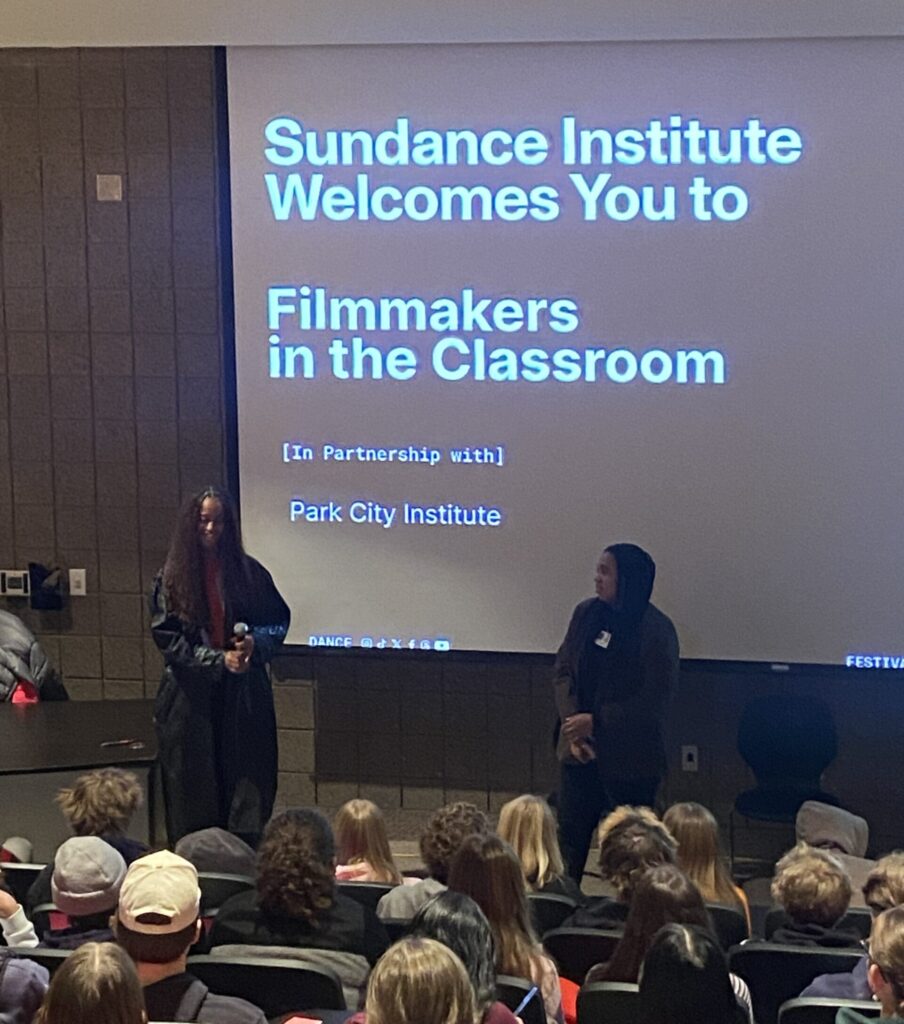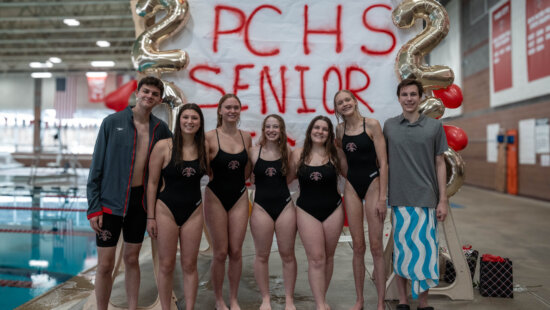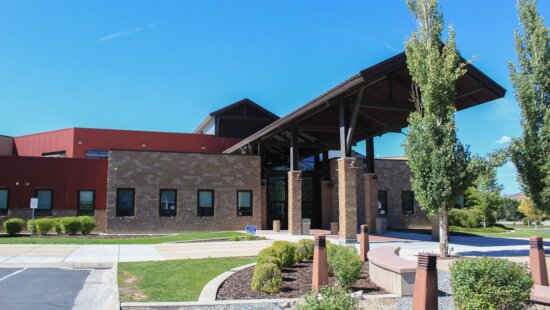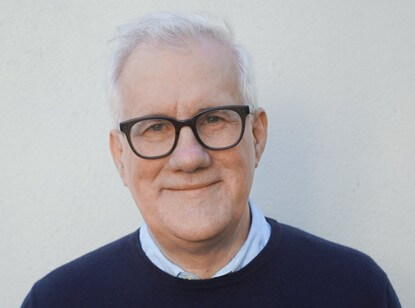Arts & Entertainment
Malia Obama and her Sundance film go into the classroom at Park City High School
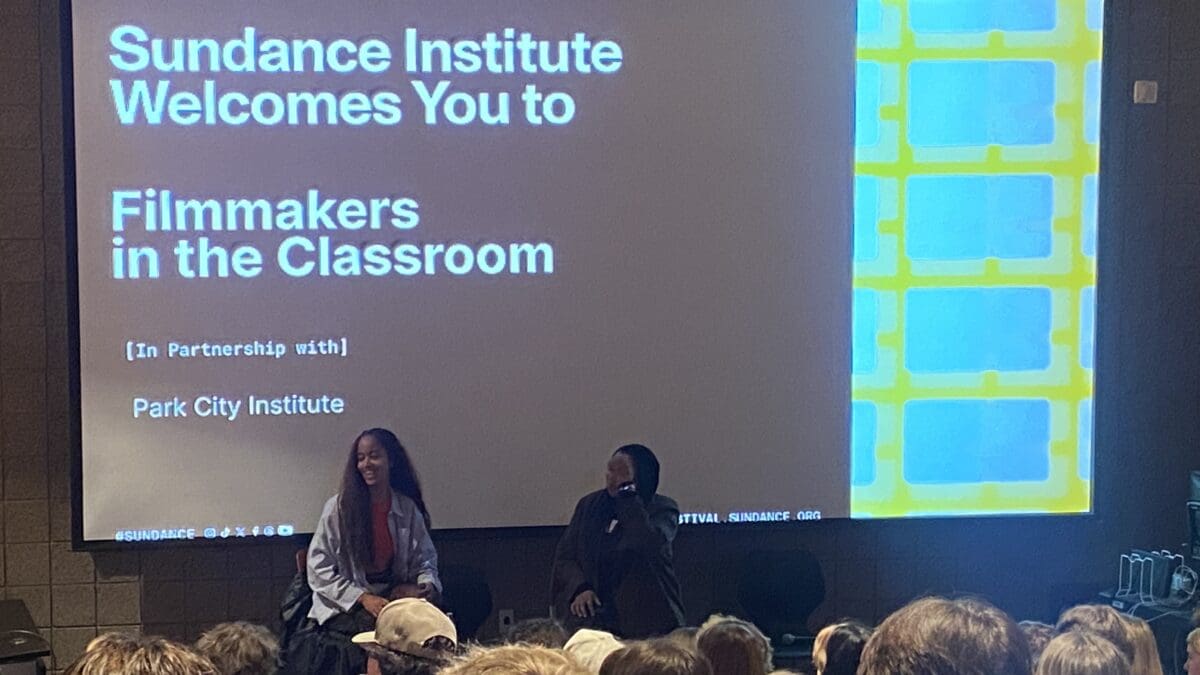
Malia Obama (L) sitting down with students at Park City High School on Monday to present her directorial debut short film "The Heart" as a part of the Sundance Film Festival's Filmmakers in the Classroom program. Photo: Michele Roepke // TownLift
PARK CITY, Utah — TownLift spoke with first-year Director of the Sundance Film Festival and Head of Public Programming Eugene Hernandez at the Festival Headquarters, which is located a half-block away from the Park City High School. He told TownLift, “We just came from a screening in Salt Lake, where we were introducing a film to a group of high school students in a theater, but we’re also doing screenings in classrooms. It’s a super important part of the Festival for us; it’s a big effort, and we love having Filmmakers in the Classroom.” He is proud of the work the Filmmakers in the Classroom program does via robust community outreach, providing opportunities for students to not only conveniently view certain films free of charge but to rub elbows with, take selfies near, and pick the brains of Sundance filmmakers.
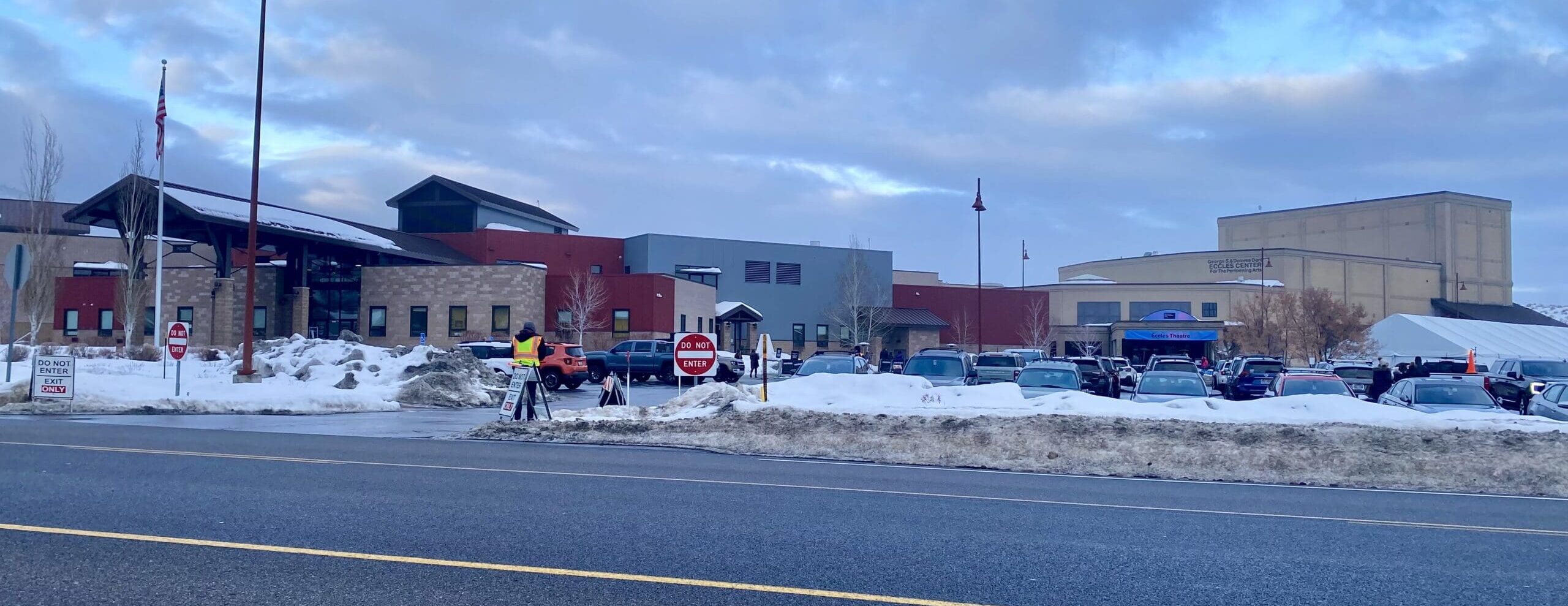
Park City High School Principal Roger Arbabi told TownLift, “Absolutely, the triple partnership of the Sundance Institute, the Park City School District and the Park City Institute is great.” He said, “It’s a positive experience when the Sundance Film Festival is in town. There’s measurable benefit in the students having so many unique, global opportunities happening right in their backyard.”
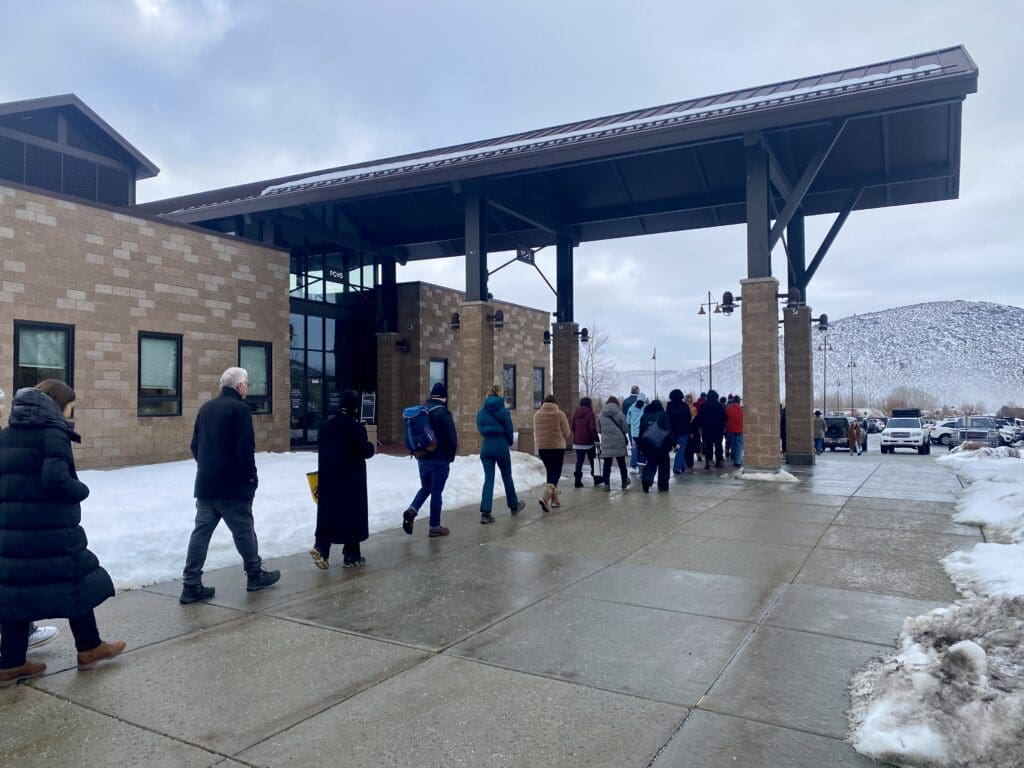
On Saturday, Arbabi volunteered in the community as an official for the sport of Luge. On Sunday, he was taking public transportation downtown and befriending out-of-town filmgoers, acting as an unofficial Park City ambassador, something to him which comes quite naturally.
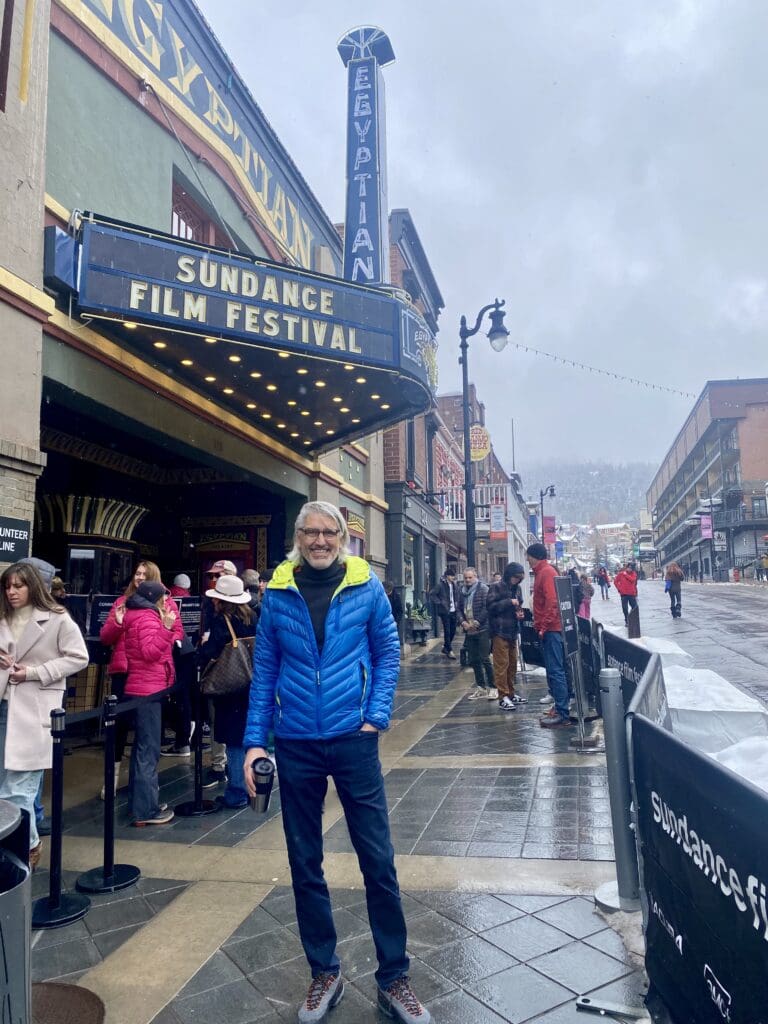
He was there to see a Sundance screening of “Igualada” at Main Street’s Egyptian Theater. The world documentary was about an single mother of African ancestors who had made it out of poverty and personal, cultural and historical discrimination to rise to prominence becoming the current Vice President of Colombia.
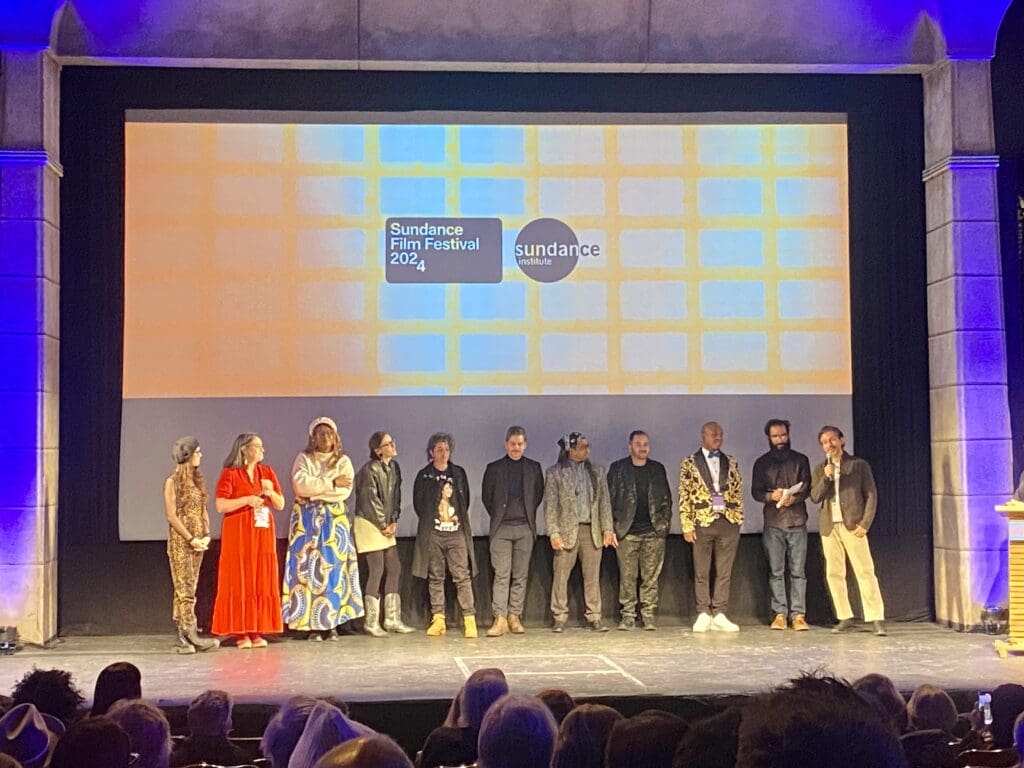
Arbabi was interested in seeing the film since, just prior to becoming the principal of Park City High School, he was the principal of a High School in Colombia. The screening was attended by the Vice President’s now grown son; however, her planned appearance was not to be. Instead of attending her premiere on the red carpet at Sundance, she stayed in her country to tend to the tragic realities of a recent deadly landslide in an underserved community.
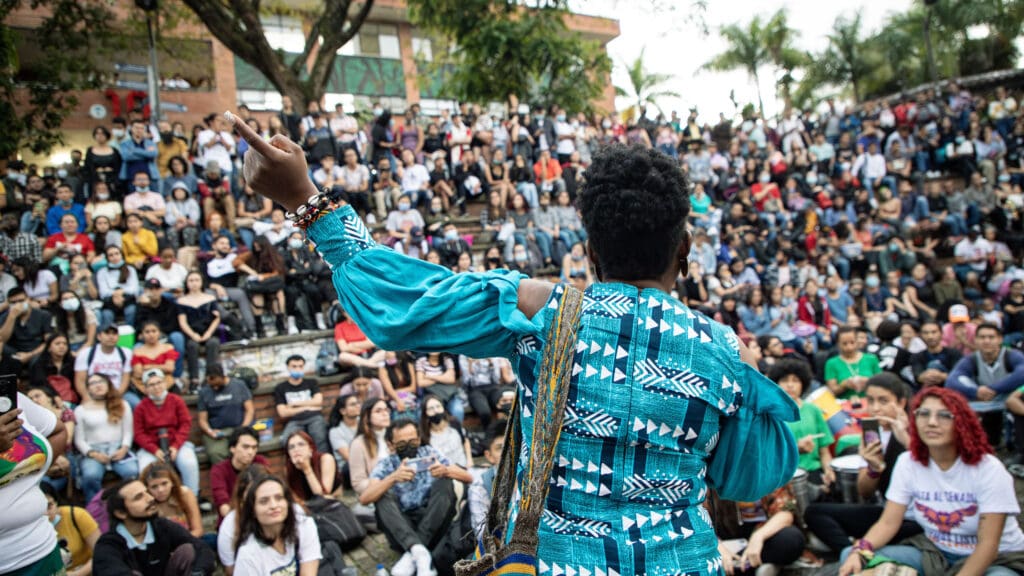
Then, on Monday, Principal Arbabi hosted none other than Ms. Malia Ann Obama at Park City High School for Filmmakers in the Classroom. She presented her directorial debut of the short film entitled “The Heart” to a group of students in a private screening. It wasn’t in the Eccles Theater venue attached to the school, but rather an interior theater to which only students have access. As the screenwriter and director, Obama is going by the name Malia Ann, and other than a fine font scrolling credit of a special thanks to her parents and her sister, there was no mention of her famous father.
There was, however, during her Q&A, an answer she gave when a student raised their hand to inquire about Ann’s writing process during her high school days. “Well, since I was grounded for, like, my whole sophomore year, it wasn’t hard to find the time to practice lots of creative writing.” The room full of a couple hundred students shared an LOL moment.
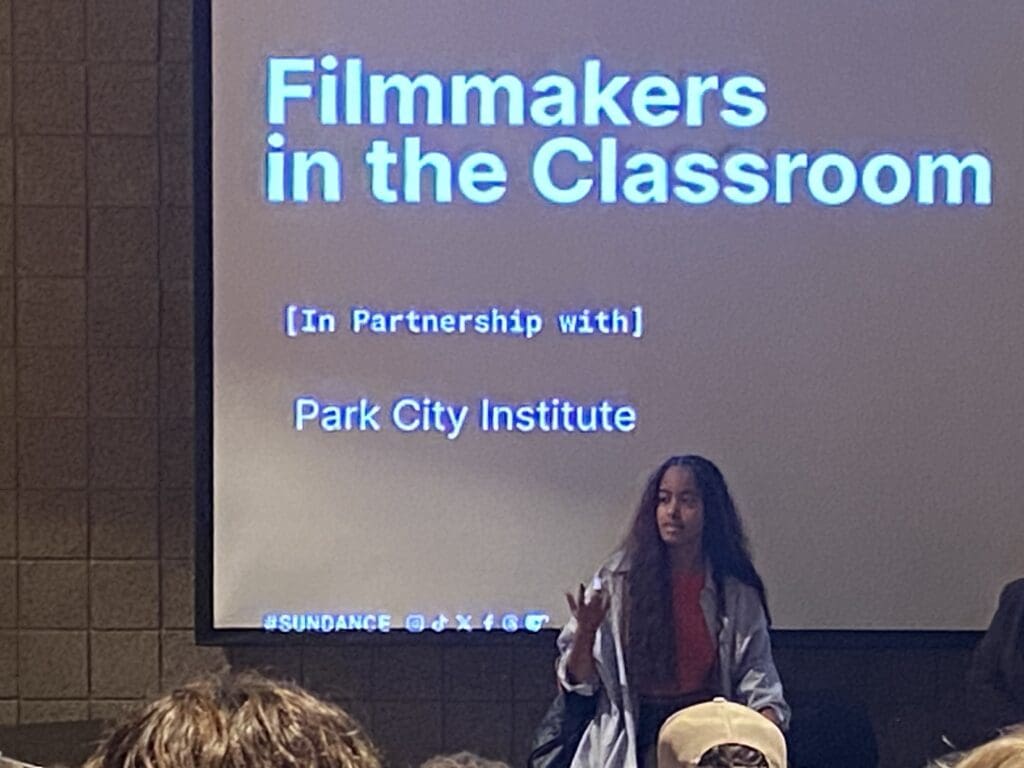
The film is about a lonely man who grieves the death of his mother after an argument about groceries and an odd request in her will.
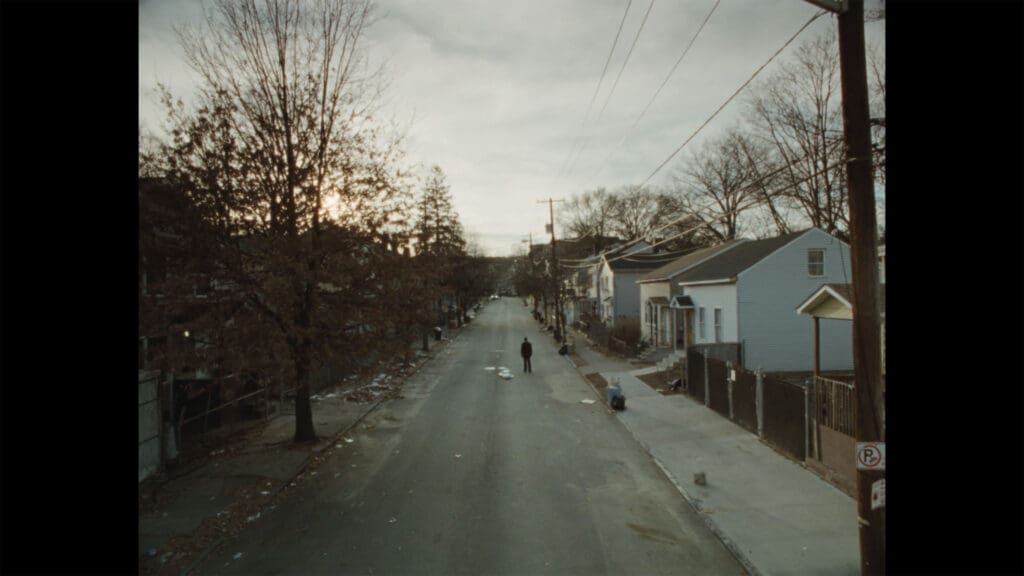
When a different student, one from Film Class, asked about the fact that the film’s cinematography format was shot in square instead of rectangle aspect, Ann grinned from ear to ear. She answered, “Wow, you are the only person at the whole Sundance Film Festival to notice and comment on that. Great job!”
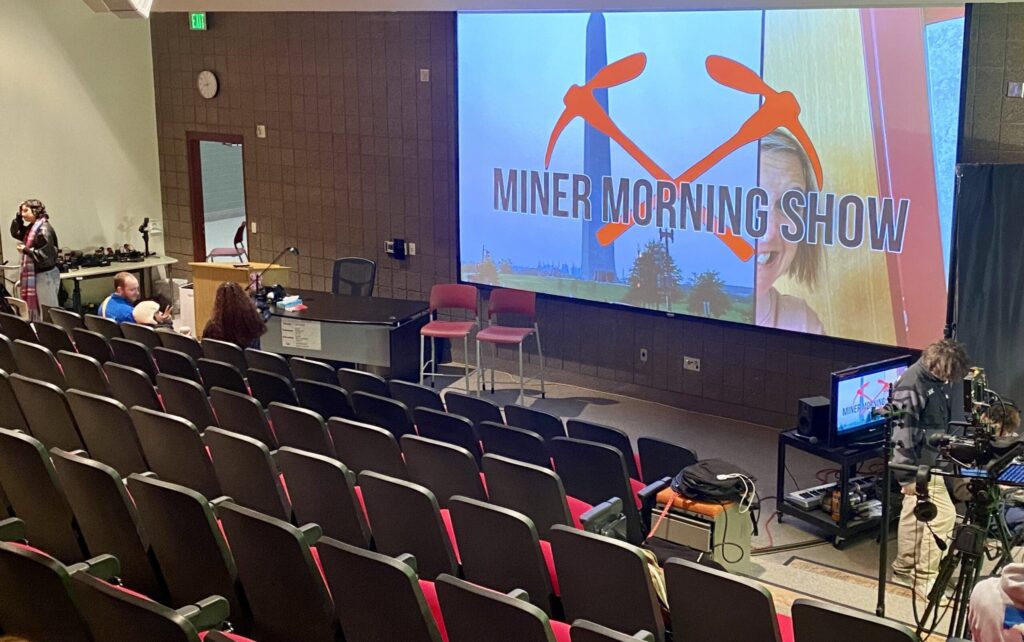
She has been coming to the Sundance Film Festival since she was 15 years old as a spectator.
Ann spoke with wisdom about industry insights, offered thoughtful tips on how to get started and shared sage advice on what types of life experiences students should focus on if aspiring to a filmmaking future.
Ten more film-related questions were patiently answered, in depth.
Then one student revisited a question, saying, “What did you do to get grounded?” Even after the person on stage facilitating the interview prompted Ann with a friendly reminder that she can say, ‘No comment,’ Ann looked out at her audience, pointed her finger left, then right and exclaimed with a knowing nod, “Oh, you all know exactly the kind of stuff I did to get grounded.”
